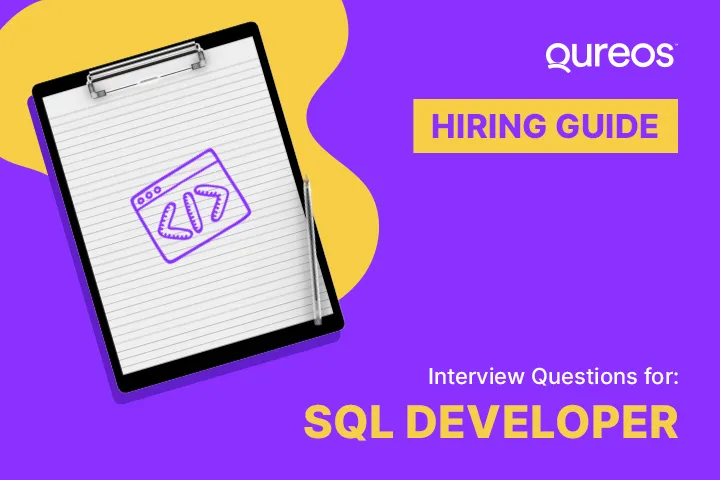The MENA region is a rapidly growing economic powerhouse with a young and dynamic workforce. However, the region's employers face several recruitment challenges, including a shortage of skilled labor, inefficient hiring processes, and a lack of employer branding.
In this blog, we will explore the top three recruitment challenges in the MENA region and discuss how employers can overcome them. We will also provide examples of how leading employers in the UAE and Saudi Arabia address these challenges.
By the end of this article, you will better understand the MENA region's recruitment landscape and be equipped with the knowledge and tools you need to attract and retain top talent.
{{hi-link="/sandbox/home-v3"}}
Top Recruitment Challenges in MENA
Shortage Of Skilled Labor in MENA
The shortage of skilled labor is a major challenge for employers in the MENA region. According to a recent PwC, 46% of respondents in the UAE and 58% in Saudi Arabia said their country has a shortage of people with specialized skills. This shortage is particularly acute in key IT, engineering, and healthcare sectors.
Many factors contribute to the shortage of skilled labor in the MENA region, particularly the rapid economic growth in the region. This growth has created a high demand for skilled workers, which has outstripped the supply of available talent.
Another factor is the mismatch between the workforce's skills and employers' needs. Many workers in the MENA region have traditional skills that are not necessarily in demand in the modern economy.
The shortage of skilled labor has several negative consequences for businesses in the MENA region. It can lead to higher recruitment costs, longer time-to-fill vacancies, and decreased productivity. It can also make it difficult for businesses to innovate and grow.
How To Overcome The Shortage Of Skilled Labor
There are several things that businesses can do to overcome the shortage of skilled labor. One is to invest in training and development programs for their employees. This will help to ensure that their employees have the skills and knowledge they need to be successful. Another is to focus on attracting and retaining top talent. This can be done by offering competitive salaries and benefits and creating a positive work environment.
Here are some specific recommendations for employers in the MENA region:
- Partner with educational institutions. Develop partnerships with local universities and technical schools to create programs that train students in the skills employers need.
- Invest in on-the-job training. Provide your employees with opportunities to learn and develop new skills.
- Offer competitive salaries and benefits. Ensure that you offer your employees competitive salaries and benefits to attract and retain top talent.
- Create a positive work environment. Foster a work environment that is supportive and inclusive, where employees feel valued and respected.
Suggested: Learn how to create a work-friendly culture in UAE effectively!
By taking these steps, employers in the MENA region can overcome the shortage of skilled labor and ensure they have the workforce they need to succeed.
Inefficient Hiring Processes
Another major challenge facing employers in the MENA region is inefficient hiring processes. Many regional employers still use outdated hiring methods, such as job postings in newspapers and on job boards, paper-based applications, and interviews.
These methods are slow and inefficient, and they can lead to many problems, including:
- Long time-to-fill vacancies: The average time-to-fill a vacancy in the UAE is 30 days (Mercer, 2023), and it is 35 days in Saudi Arabia (LinkedIn, 2023). This is longer than the global average of 27 days (Linkedin, 2023).
- High recruitment costs: The average cost of recruiting an employee in the UAE is AED 10,000 (Mercer, 2023), and it is SAR 12,000 in Saudi Arabia (Borderless, 2023). These costs are higher than the global average of AED 8,000 and SAR 10,000, respectively (Linkedin, 2023).
- Poor candidate experience: Inefficient hiring processes can lead to a poor candidate experience. Candidates may have to wait weeks or even months to hear back from employers, and they may have to go through multiple rounds of interviews. This can lead to candidates feeling frustrated and disengaged.
- Increased risk of hiring mistakes: Inefficient hiring processes can also lead to an increased risk of hiring mistakes. Employers may not have enough time to screen and evaluate candidates properly, and they may make decisions based on gut instinct rather than data. This can lead to the hiring of unqualified or underqualified candidates.
Suggested: Learn more about the Nafis Program and how you can benefit from it.
How To Overcome Inefficient Hiring Processes
Employers can overcome inefficient hiring processes by adopting modern hiring technologies and practices, including:
- Use AI-powered recruitment tools:
AI-powered recruitment tools can help employers automate and streamline their hiring processes, improve the candidate experience, and make more informed hiring decisions. For example, AI can be used to:
- Screen resumes and identify qualified candidates
- Conduct pre-employment assessments
- Schedule interviews
- Make hiring decisions
Here are some specific examples of AI-powered recruitment tools that employers in the UAE and Saudi Arabia can use:
- Iris: Iris can help employers to automate and streamline their hiring process. It is a powerful tool that offers precise candidate profiling, AI-driven job description generation, and an adaptive engine for smarter hiring.
- LinkedIn Talent Insights: LinkedIn Talent Insights is a platform that uses AI to help employers find and hire qualified candidates. It uses data from LinkedIn profiles to identify candidates with the required skills and experience, and it also provides insights into the candidate's work history, education, and skills.
- Pymetrics: Pymetrics is a pre-employment assessment platform that uses gamified exercises to assess the candidate's cognitive and behavioral skills. It uses AI to analyze the candidate's performance on the exercises and provide insights into their personality and work style.
By using AI-powered recruitment tools, employers can overcome inefficient hiring processes and improve their overall recruitment strategy
Read more: Get insights on how AI is changing recruitment in the Middle East.
{{s1-link="/sandbox/home-v3"}}
Examples of overcoming inefficient hiring initiatives in the UAE and Saudi Arabia
Here are some specific examples of how employers in the UAE and Saudi Arabia are using modern hiring technologies and practices to overcome inefficient hiring processes:
- Emirates NBD, one of the largest banks in the UAE, is using an ATS to automate and streamline its hiring process. The ATS has helped Emirates NBD to reduce the time-to-fill vacancies by 20%.
- Saudi Aramco, the world's largest oil company, is using video interviewing to interview candidates from all over the world. This has helped Saudi Aramco to reduce the cost of travel and logistics.
- Mubadala, a sovereign investment company in the UAE, is using pre-employment assessments to assess the skills and knowledge of candidates. This has helped Mubadala to make more informed hiring decisions.
- Almarai, the largest dairy company in the Middle East, is using data-driven hiring practices to improve the efficiency of its hiring process. Almarai uses data from its ATS and employee performance reviews to identify the most qualified candidates.
By following the example of these leading companies, employers in the UAE and Saudi Arabia can overcome inefficient hiring processes and improve their overall recruitment strategy.
Suggested: Discover how AI is revolutionizing the hiring process!
A Lack Of Employer Branding
The third major challenge facing employers in the MENA region is a lack of employer branding. Employer branding is creating a positive image of a company as an employer. It is about communicating the company's culture, values, and benefits to potential employees.
Many employers in the UAE and Saudi Arabia do not have a strong employer brand. They have not invested the time and resources to develop and promote their employer brand. As a result, these employers find it difficult to attract top talent.
Why Is Employer Branding Important?
Employer branding is important because it can help employers to:
- Attract top talent
- Reduce recruitment costs
- Improve employee retention
- Increase employee engagement
- Boost productivity
How to Build a Strong Employer Brand?
- Define your employer value proposition (EVP)
Your EVP is what makes your company unique and attractive to potential employees. It should be clear, concise, and compelling.
- Identify your target audience:
Who are you trying to attract with your employer branding efforts? Once you know your target audience, you can tailor your messaging accordingly.
- Develop a branding strategy:
Your branding strategy should outline how you communicate your EVP to your target audience. It should include a mix of online and offline channels.
- Be authentic:
Your employer brand must be authentic and reflect the true culture of your company. Don't make promises that you can't keep.
- Be consistent:
Your employer branding efforts should be consistent across all channels. This includes your website, social media, and job postings.
Read more: Discover the top 10 AI recruiting tools for hiring.
Examples Of Employer Branding Initiatives In The UAE and Saudi Arabia
- Dubai Electricity and Water Authority (DEWA) has launched an employer branding campaign that focuses on the company's commitment to sustainability and innovation. The campaign has helped DEWA attract top talent from all over the world, including engineers and scientists passionate about making a difference in the world.
- Emaar Group, one of the largest real estate developers in the world, has launched an employer branding campaign that focuses on the company's commitment to excellence and its vision for the future. The campaign has helped Emaar Group to attract top talent from all over the world, including architects, engineers, and designers.
- King Abdulaziz City for Science and Technology (KACST), a Saudi Arabian government research and development center, has launched an employer branding campaign focusing on the company's commitment to innovation and its mission to support the development of the Saudi Arabian economy. The campaign has helped KACST to attract top talent from all over the world, including scientists, engineers, and researchers.
Final Thoughts
Employers can create a more efficient and effective recruitment process by investing in training and development, partnering with educational institutions, adopting modern hiring technologies and practices, and leveraging AI. By investing in employer branding, employers in the UAE and Saudi Arabia can overcome the challenge of attracting top talent.
In conclusion, the MENA region is a rapidly growing economic powerhouse, and the demand for talent will only increase. Employers in the region who proactively address their recruitment challenges will be better positioned to succeed in the long term.
Read more: Explore the benefits of the Saudization policy.




